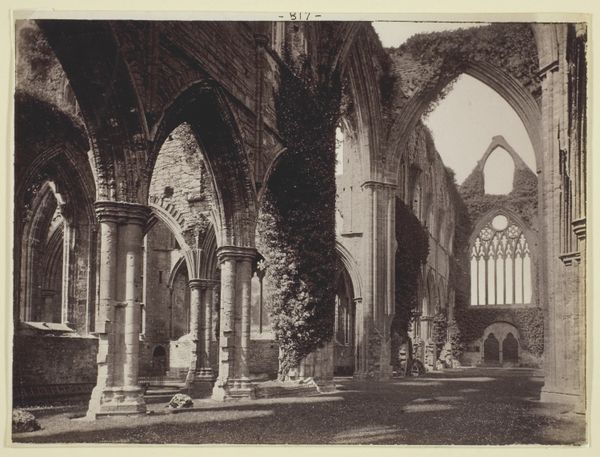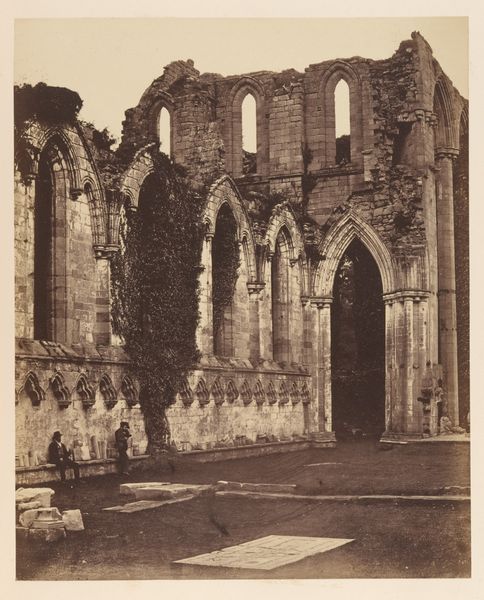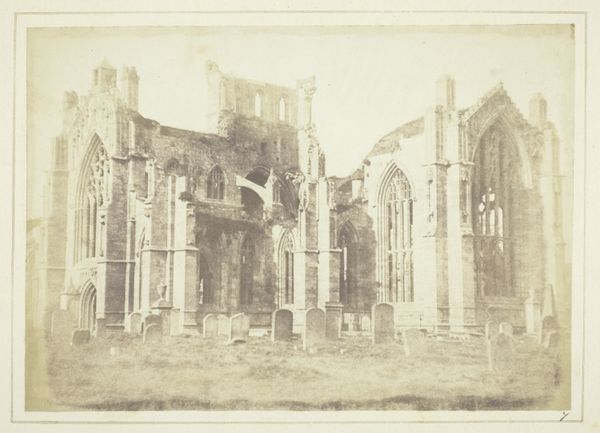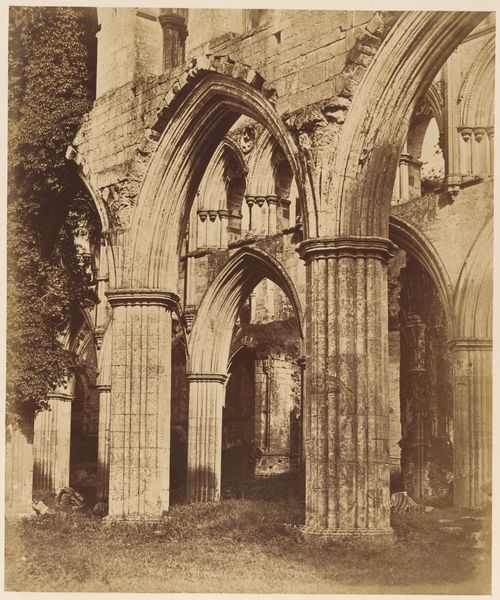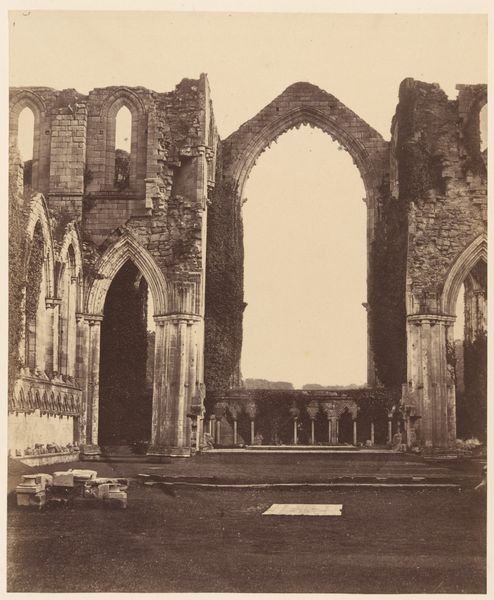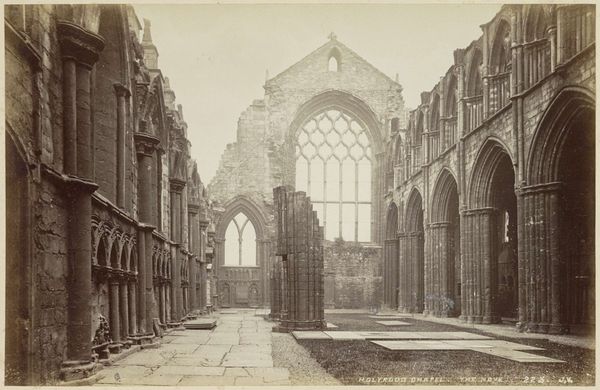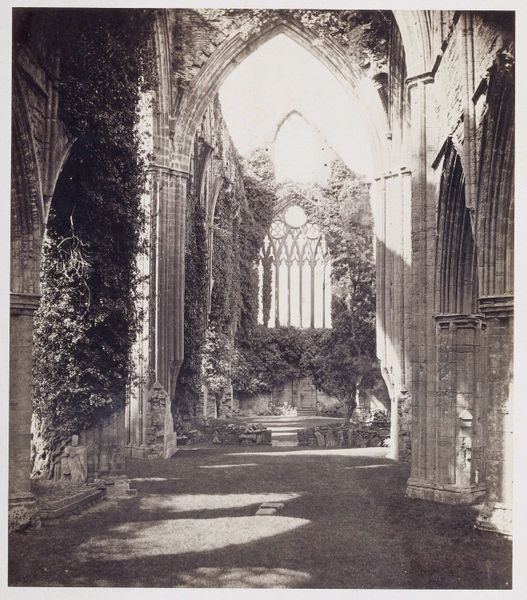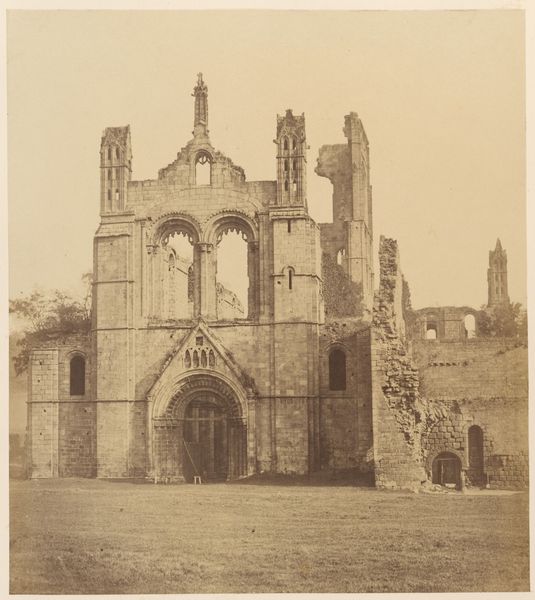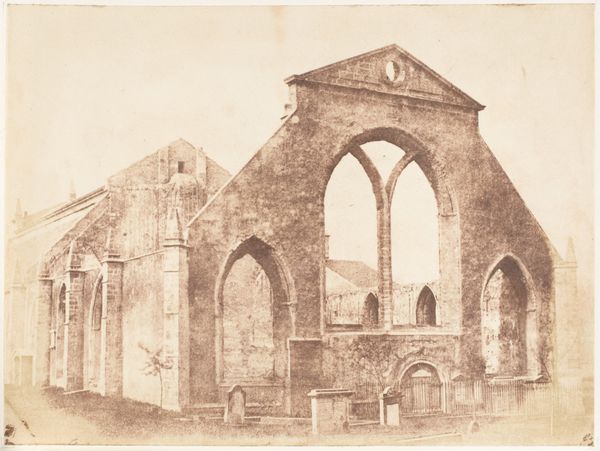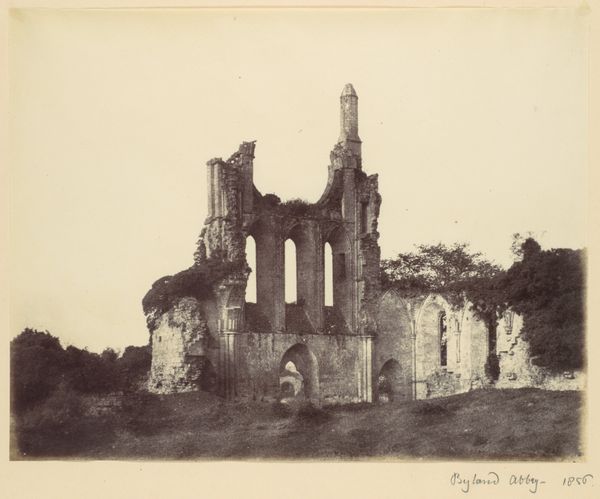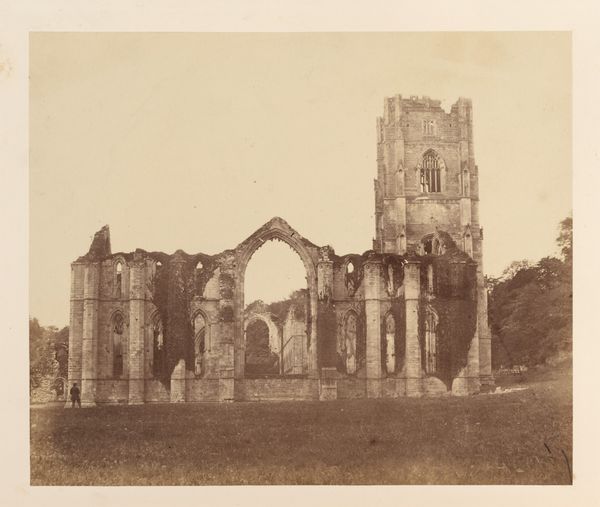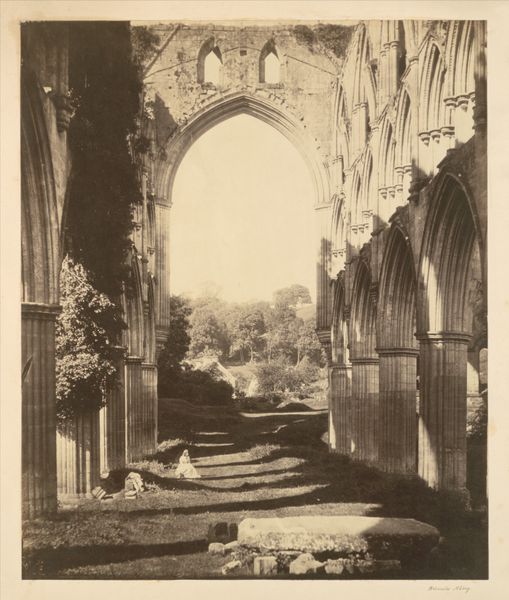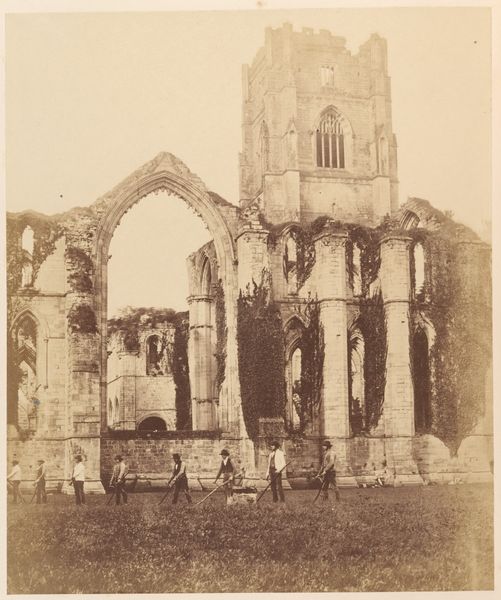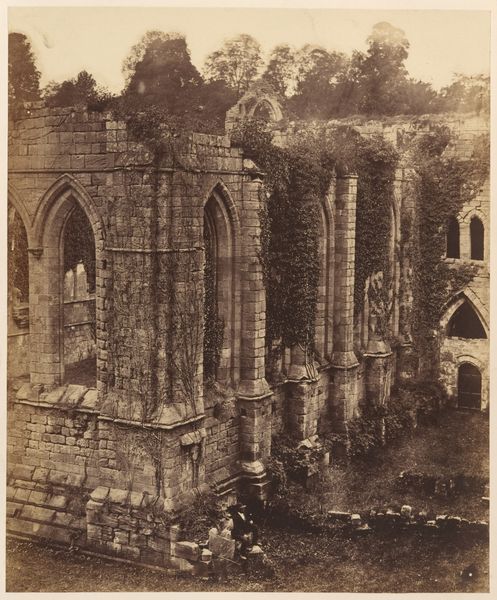
albumen-print, photography, albumen-print, architecture
#
albumen-print
#
16_19th-century
#
medieval
#
sculpture
#
landscape
#
historic architecture
#
photography
#
19th century
#
albumen-print
#
architecture
#
historical building
#
statue
Dimensions: 7 9/16 x 11 7/16 in. (19.21 x 29.05 cm) (image)
Copyright: Public Domain
This albumen print of Melrose Abbey was created by James Valentine sometime in the late 19th century. Its sepia tones and incredible detail are achieved through a painstaking chemical process. Valentine's photographs were made possible by the industrial production of photographic materials. The glass plate negative, coated with light-sensitive chemicals, captured the intricate stonework of the abbey. The albumen paper, made from egg whites, gave the print its smooth surface and rich tones. The photograph was made through a contact printing process, where the negative was placed directly onto the paper, and exposed to sunlight. It's important to remember the labor involved in this process, from the factory workers producing the photographic materials, to the photographer himself, carefully composing and developing the image. It's a picture of craft embedded in an industrial system. The photograph is not just a record of the abbey, but a testament to the changing landscape of art and industry in the 19th century.
Comments
No comments
Be the first to comment and join the conversation on the ultimate creative platform.
